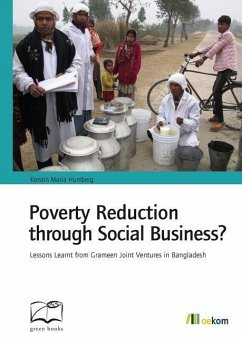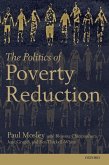Since Nobel Peace Laureate Muhammad Yunus first began launching joint ventures with multinational corporations in Bangladesh, his social business concept has received international attention. What is a social business and how can it contribute to poverty reduction? Using the example of Bangladesh, this book systematically explores Yunus' theoretical propositions in relation to relevant development policy. In two case studies, we look at the challenges in their business operations, mitigation strategies, and livelihood outcomes for the poor of Grameen Danone and Grameen Veolia Water. While the former aims to fight child malnutrition by selling fortified yoghurt, the latter provides rural communities with treated river water in arsenic affected areas.The first comprehensive empirical study of Yunus' pioneering experiments in his home country, this book provides exciting first-hand insights for academics, development practitioners, and social entrepreneurs alike.








